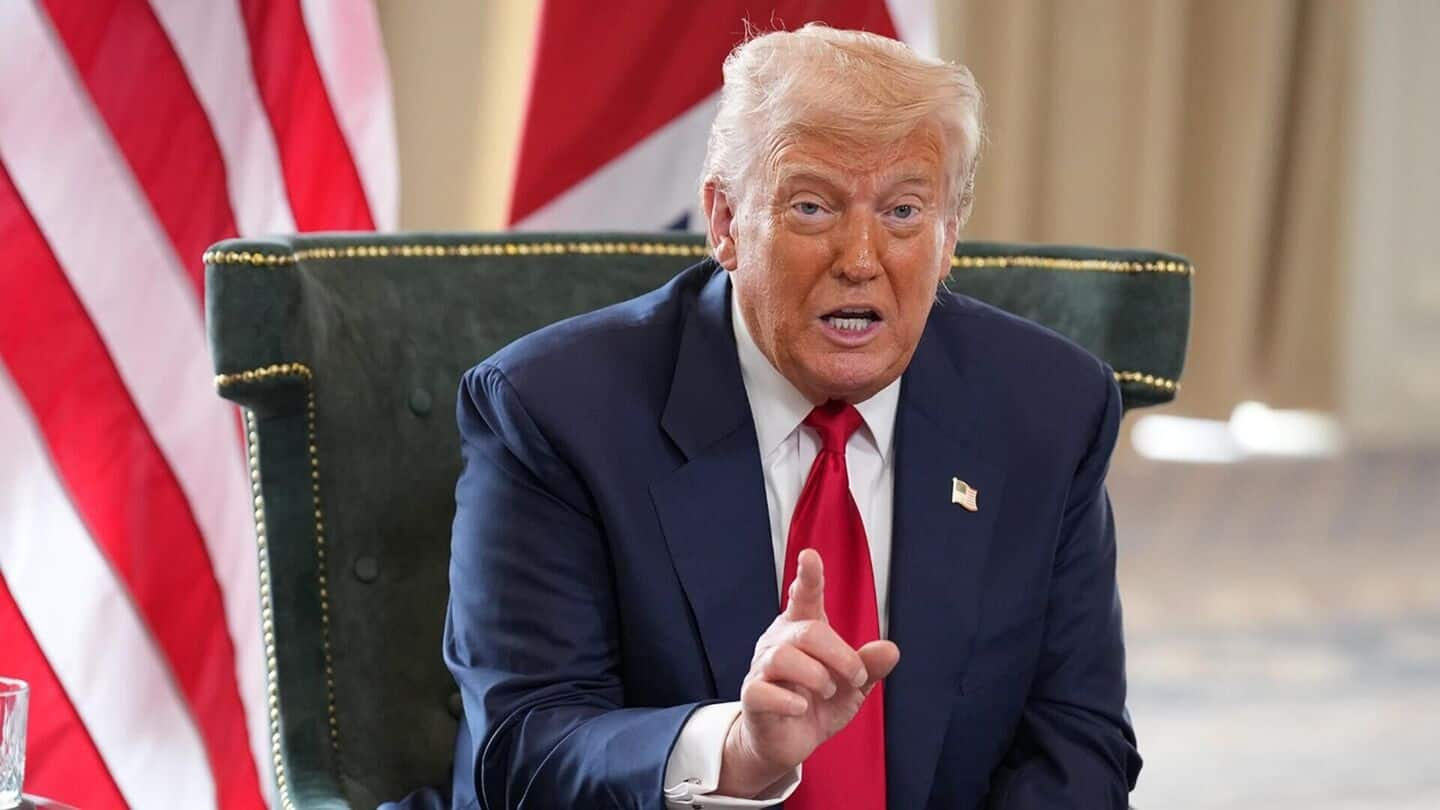
Russia has lost India as an oil client: Trump
What's the story
United States President Donald Trump has claimed that Russia has lost India as an oil client. The statement comes after Washington announced a 25% additional duty on Indian goods last month. The additional duty will come into force on August 27. "Well, he (Russian President Vladimir Putin) lost an oil client, so to speak, which is India," Trump said in an interview with Fox News. However, India has not officially confirmed halting oil purchases from Russia.
Tariff speculation
Trump hints at potential secondary tariffs on China
Trump also hinted at the possibility of imposing secondary tariffs on China if necessary. He said, "If I have to do it, I'll do it. Maybe I won't have to do it." The White House had cited national security and foreign policy concerns over India's imports of Russian oil as an "unusual and extraordinary threat" to the United States.
MEA statement
India strongly objects to Trump's additional tariffs
India's Ministry of External Affairs (MEA) has strongly objected to the additional tariffs. The MEA said, "The United States has in recent days targeted India's oil imports from Russia." It added that India's imports are based on market factors and energy security for its 1.4 billion people.
Oil imports
Indian refiners reportedly stop buying Russian crude
Despite the ongoing tariff dispute, India continues to import Russian oil. However, according to a Bloomberg report, state-owned refiners have reportedly stopped buying Russian crude after Trump's actions. Indian Oil Corporation chairman AS Sahney confirmed that India has not halted oil purchases from Russia and is buying solely based on economic considerations.
Sanction warning
US warns of potential sanctions on India
US Treasury Secretary Scott Bessent had earlier warned that if talks between Trump and Putin did not yield results, secondary sanctions on India could be expanded. He said, "We put secondary tariffs on the Indians for buying Russian oil. And I could see, if things don't go well, then sanctions or secondary tariffs could go up."